#narcolepsy awareness
Text
[long post, sorry, theres a tldr at the end but i really recommend reading the full thing if you can]
i really wish there was more like. narcolepsy awareness stuff in the world. that teaches people the actual symptoms and not just the stereotype. the amount of people i have talked to both online and in person about my experiences with narcolepsy who have been shocked at how much they related to my experiences is staggering.
narcolepsy is so under-diagnosed and also very often misdiagnosed as something else because so many people, even within the medical field, don’t know the actual symptoms of narcolepsy (i am not pulling this out of my ass, my sleep specialist has told me this several times. its a real issue that sleep specialists continue to battle to this day). up until relatively recently, the past 5-10 years or so, narcolepsy and other similar sleep disorders weren’t even considered real by a lot of the medical field!!
narcolepsy is not “falls asleep at random” disorder. narcolepsy is a disorder of sleep cycles, causing the brain to enter rem sleep much quicker and more frequently then it should.
this causes things like excessive daytime tiredness/chronic fatigue, extremely vivid dreams, sleep paralysis, hallucinations while waking up/falling asleep, and in the case of those with narcolepsy type-1, cataplexy (aka, while feeling intense emotions the brain will enter rem sleep while awake, causing muscles to lock up. this is where the “falls asleep at random” stereotype comes from, but the person experiencing it is not actually asleep, just unable to move their muscles. i can’t really speak more on this specific part of narcolepsy, since i have type-2, aka narcolepsy without cataplexy, this is just the basics i was told by my sleep doctors. EDIT: someone who experiences cataplexy has added their experiences in a reblog, if youd like to learn more please go take a look!!)
[note: these are not the only symptoms of narcolepsy. not all people with narcolepsy will experience all of these symptoms, and everyone will experience them at different frequencies. for example, i only get sleep paralysis once every month or so, and my hallucinations tend to be limited to auditory]
according to my sleep doctor, narcolepsy also has links to both adhd and chronic strep throat as a child (i have no idea how that last one works. but. thats what my doctor said and hey. she was right. i had chronic strep throat as a child and look at me now.)
EDIT because i forgot to add: narcolepsy can not only co-exist with insomnia, but cause insomnia as well! excessive daytime tiredness --> more naps during the day --> harder time falling asleep at night
so yeah. i guess this is me doing awareness. if you relate to any of these symptoms, please talk to a sleep specialist if you’re able to. it might not be narcolepsy, but chances are it’s something, since none of these things are normal (to repeat, excessive daytime tiredness is not normal. that means there is something wrong). theres nothing wrong with asking a sleep specialist about narcolepsy and getting tested for it, even if you come back negative.
my dms and askbox are open anytime for any kind of questions about narcolepsy, the diagnostic process, treatments, etc. while i am not a doctor, i have learned a lot through my own experiences, talking with my sleep specialist, and also my own research, since i’m currently studying to hopefully make narcolepsy research my career! whether you are questioning having narcolepsy or not, you are not bothering me with questions, i promise, you asking will probably make my day
TLDR; narcolepsy is a very misunderstood and underdiagnosed sleep disorder, and i highly recommend everyone learn about what it actually is and what the symptoms actually are, and if you relate to any of them, talk to a sleep specialist
[other narcoleptics feel free to add on to this post with your own experiences(and also to message me i always want to talk to other narcoleptics ASJDKHJ), and non-narcoleptics please please feel free to reblog! i really want to start spreading awareness for this disorder, since again, severally under/misdiagnosed and most of the world is still under the impression that the narcolepsy stereotype is true]
#GIRL HELP I KEEP FINDING TYPOS/GRAMMER ERRORS AFTER IT ALREADY HAS SO MANY REBLOGS#narcolepsy#narcoleptic#sleep disorder#chronic fatigue#disabilty awareness#narcolepsy awareness#disability#disabled#please reblog. i really dont want this to flop lol i am So Passionate about this stuff
2K notes
·
View notes
Text
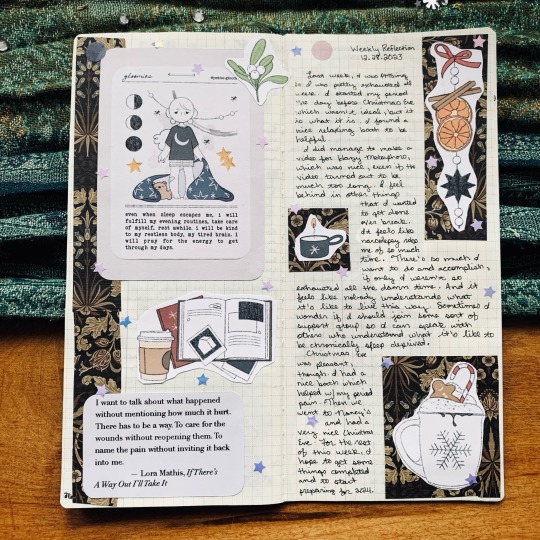
“I will be kind to my restless body.” — Megan Rhiannon
People sometimes mistakenly think that narcolepsy is the opposite of insomnia, when, in fact, people with narcolepsy can suffer from insomnia, too. Narcolepsy isn’t just a struggle to stay awake (though that’s part of it)—our brain have trouble regulating sleep/wake cycles, leaving us chronically sleep deprived whether we can fall asleep or not.
Gloomies card and printable stickers are by @petite-gloom .
#own post#notebooks#journal#commonplace book#Hobonichi weeks notebook#Hobonichi weeks memo#narcolepsy#narcolepsy awareness#narcolepsy problems#symptoms of narcolepsy
108 notes
·
View notes
Text

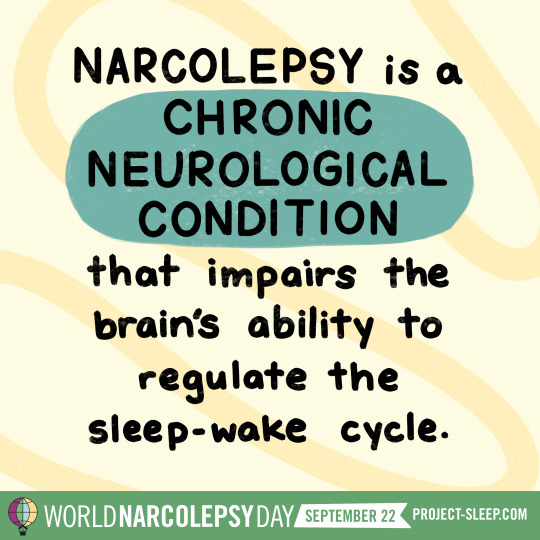
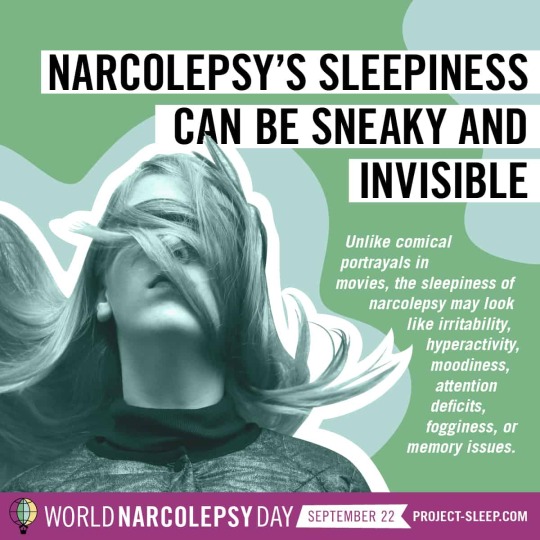

Today is World Narcolepsy Day 💤
I sometimes feel my journey with Narcolepsy can be boiled down to one sentence: I've always been sleepy.
For the majority of my adult life I've suffered from sleep attacks; moments of overwhelming sleepiness that lead me to nap without much of a warning. They can, and do, happen at any time, regardless of what I'm doing: watching TV, running errands, doing chores, talking, eating, driving. They can be annoying, inconvenient, and sometimes scary.
I was first tested for Narcolepsy in 2015, not long after I fell asleep whilst actively helping new roommates move in. My results were inconclusive, and I moved on. By early 2021, I couldn't get through a day without a lunch-break nap. I spent most of my weekends in bed, and was sleeping upwards of 11 hours at a time. When I was re-tested, just after I got married, I was diagnosed with Narcolepsy (without cataplexy). My sleep latency (time it takes to fall asleep) was 5 minutes.
I trialed several medications, some that didn't work, and some that gave me adverse reactions. My sleep attacks got worse. I had to ask for accommodations at work. By early 2022, I had to stop driving. Shortly after that, I was forced to quit my full-time job.
I am currently on a medication that works for me. It doesn't earn me better sleep, or stop me from needing to nap, but it undoubtedly makes me feel a little bit more human. I still struggle with sleep attacks, but instead of several times a day, I may experience them a few times a week. The attacks can sometimes still be overwhelming, but I've mostly learned what brings them on and can recognize the signs. And, I can drive again.
Narcolepsy is a learning curve. It affects everyone differently, and treatments vary. The medications and lifestyle changes that work for one person may not work for another. Advocate for yourself. Only you know what you need to live comfortably and safely with narcolepsy.
#worldnarcolepsyday#narcolepsy#narcolepsy type 2#narcolepsy awareness#narcoleptic#sleep disorder#chronic illness#rare disease
18 notes
·
View notes
Text
Narcolepsy Awareness Day 🥄💊
7 notes
·
View notes
Text
Today and everyday, I am representing those with the rare disorder - Idiopathic Hypersomnia.
IH causes one to be very sleepy during the day regardless of the amount of sleep received. Unfortunately, we have yet to figure out what causes IH or how to treat it. I have participated in numerous medical trials, taken trial medications in every form imaginable, and I have even been injured by medical tests gone wrong (induced sleep paralysis = broken toe). I have spent countless weekends in a hospital bed, forced to stay awake for 25+ hours in order to conduct testing so perhaps others can find relief.
How does it affect my life?
I’m exhausted all the time. I honestly don’t know what “being refreshed” feels like. I haven’t felt that since I was a child. I sometimes sleep whole days away and it affects my relationships. I can’t drink with friends because the alcohol will make me fall asleep at the bar. I have been bruised from too much time in my bed or couch. It makes it extremely hard to stay motivated at the gym. I have fallen asleep on a treadmill and while recieving tattoos. Worst of all, it affects my memory (along with another neurological disorder). Sleep is so important to our brains, it’s a time for it to recover. And my particular version of IH causes my brain to float in light sleep, hardly ever reaching REM. So my brain is never healing. I forget things, I get anxious that I’m forgetting things, and I have a hard time formulating words that I want. It hurts to know I’m smart but can’t always present myself that way.
I could go on and on about the affects it has on me, but honestly the hardest part is people who don’t think you have a disorder. “I’m tired a lot too!”
I will always and forever support invisible disabilities. It is a backwards way of thinking to think disability means wheelchair, or some other physical ailment. Just because you can’t see a disorder, doesn’t mean it’s any less real. “You’re too young to be forgetting things..” that’s one I hear A LOT. Yea, thanks for the reminder than I’m on my way to early memory loss way before my time. I can’t even remember vacations with my family. Memories that I know I love but can’t reach.
Be kind, be cautious with your words, be supportive even if you don’t know the whole story, don’t deny someone else’s reality just because it’s different than your own.
To all my loves with narcolepsy or any other invisible disability, I see you ♥️
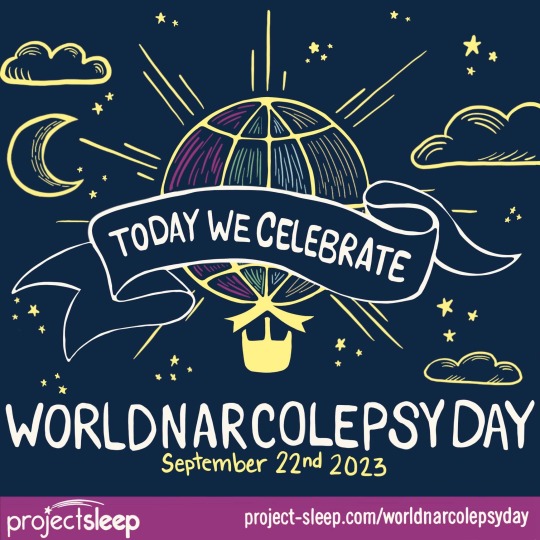
#worldnarcolepsyday#narcoleptic#narcolepsy#idiopathic hypersomnia#idiopathic hypersomnolence#no sleep#sleep disorder#livingwithIh#no rest for the wicked#invisible disease#invisible disability#awareness
49 notes
·
View notes
Text
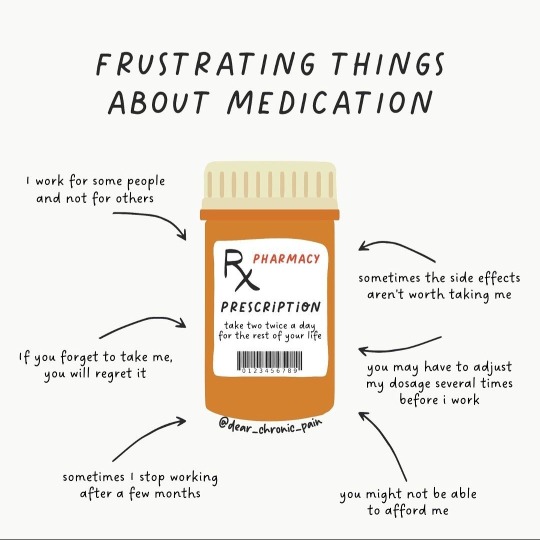
Truth
#lupuswarrior#narcolepsy#chronic illness awareness#chronicillnesslife#systemic lupus erythematosus#sle lupus#adhd#adult adhd#chronic illness warrior
84 notes
·
View notes
Text
happy ih awareness week to all my sleepyheads out there 💕✨😘
#hope you get a diagnosis & proper meds soon 💛#and also a really really good cookie#my posts#ih tag#idiopathic hypersomnia#narcolepsy#sleepy bitch disease#medical#ih awareness week
15 notes
·
View notes
Text
fun fact about narcolepsy is that it’s not necessarily that you fall asleep all the time—a lot of people with narcolepsy also have insomnia!! it’s just that the line between awake and asleep is a lot fuzzier for narcoleptics than regular sleepers so asleep is not fully asleep just like awake is not fully awake
#spreading awareness of my disability is rly important to me#also the popular depiction of narcolepsy is…problematic#netch-rancher.txt#not tes#narcolepsy#disability posting
35 notes
·
View notes
Text
something i wasnt expecting but makes Perfect Sense: out of all the abled people who i have talked to at college about my disability, the ones who seem to understand the most are the abled autistic people. abled non-autistics will give me pity or ask why i cant do things or ask when im going to get better. but abled autistics. every single time. have just nodded, said to let them know if theres anything they can do, and moved on
#talking strictly about physical disability btw#im aware that autism is a disability thats just not what i mean in this post djsgsjjd#disabled#disability#narcolepsy#chronic fatigue#narcolepsy moments#autism
72 notes
·
View notes
Text

Faust is very much narcoleptic and she is not very happy about it. Her narcolepsy is punctuated by cataplexy, episodes of sudden and transient voluntary muscle weakness caused by intense emotion (ie terror, anger, surprise) or extreme physical effort especially when caught unaware which can range from the slackening of facial muscles to complete muscular paralysis with postural collapse. Thankfully she has taught herself how to catch herself when she feels an oncoming cataplectic attack thus avoiding harming herself during full-blown collapse.
Using Identities and E.G.Os that have some overwhelming emotion behind them can aggravate a catapletic attack this is especially true of her One Who Grips Identity which she only uses very infrequently due to the sheer mania and fanaticism that comes from using it
If she trusts you well enough she will tell you about both her narcoleptic tendencies, her cataplexy, and why she must keep herself as emotionless as possible
#NOTE: the combination of cataplexy and narcolepsy is considered an autoimmune disease. And having cataplexy on its own is rare#also despite her inability to see or talk properly Faust is aware and able to hear things during her cataplectic fits#scientific witchery;FAUST#insight;HEADCANON
6 notes
·
View notes
Text
hot-ish take
many disabilities would still be disabilities in a non-ableist society—especially physical disabilities.
our chronic pain would still be an issue if it were properly accommodated, because we are still in pain. even if we have support, that support can only go so far. a cane will not alleviate all of our pain, it just helps to make it less of an issue.
we, being autistic and medium support needs, would still have restrictive food preferences and low pain tolerance in a non-ableist society. those are debilitating; our safe foods are unhealthy and worsen our physical pain, and we cannot avoid injury.
we are likely narcoleptic as well, and this means that we miss a lot. in class, in work, literally everywhere. sleep attacks and fainting episodes are unavoidable and completely random for us. this hinders our learning, our ability to get places, everything. whether or not society is ableist doesn’t change that. sometimes, we will have a sleep attack on the bus and miss our stop. that disabled us in and of itself.
we also have DID, and our experience of it includes painful switches, frequent blackout amnesia, and frequent splitting. this is terrifying, frustrating, and debilitating regardless of the situation. i love and care for my alters, but i do not love having DID because it stops me from getting so much done.
even in a non-ableist, perfect society, we would be disabled.
#actually disabled#disabled#disability#disability awareness#physical disability#chronic pain#chronic fatigue#fibromyalgia#narcolepsy#actually narcoleptic#autism#actually autistic#autistic#avoidant restrictive food intake disorder#sensory issues#low pain tolerance#osddid#did#dissociative identity disorder#did system#actually traumagenic#actually plural#actually dissociative#actually disordered
26 notes
·
View notes
Text
So…does having narcolepsy increase your chance of having parasomnias? I have a reoccurring dream that feels so realistic that I genuinely can’t tell if I’m acting out in my sleep while it’s happening. I am seriously begging and hoping that what I experience is just a dream cuz I hate the idea of acting out in my sleep and not having control over it. It also only happens during naps afaik, or at least that I’m aware of.
I’m in the process of trying to get my doctor to refer me for a sleep study/MSLT or to a sleep specialist who can do those for me. But now I’m worried that my potential narcolepsy will impact more than just me if in the future I have a bed partner. (I haven’t had one before, but if I’m ever in a relationship, I would want them to know if I do act out in my sleep.)
#I won’t go into specifics about what I mean when I say ‘acting out’ but I feel like some people might guess#I just rly don’t like the idea of doing stuff without my awareness of it#maybe that’s the trauma (tm) but I hate the idea of not being in control of myself#and the idea that it could impact others I care about in the future kills me#narcolepsy#parasomnia#sleep disorder#nagichi talks
1 note
·
View note
Text
story idea: a character who travels to another world every time they fall asleep except... they have narcolepsy so their sleep/wake cycles are all fucked up.
#writing ideas#writeblr#untitled narcolepsy story#idk if i'll write this or not but figured i would record it#inspired by my realization i've probably had narcolepsy this entire time#turns out it isnt normal to dream while you're awake or to be aware of your surroundings when asleep lol
1 note
·
View note
Text
Childhood Trauma and Adult Sleep Disorders
A 2015 PubMed article states that 61% of children in the US alone experienced some sort of trauma.
A clear association has been identified between childhood trauma and adult distributive sleep patterns such as narcolepsy and insomnia.
Other behavioral issues such as anxiety, obesity and substance abuse are also connected to childhood trauma.
Working with both a doctor to address the physical…
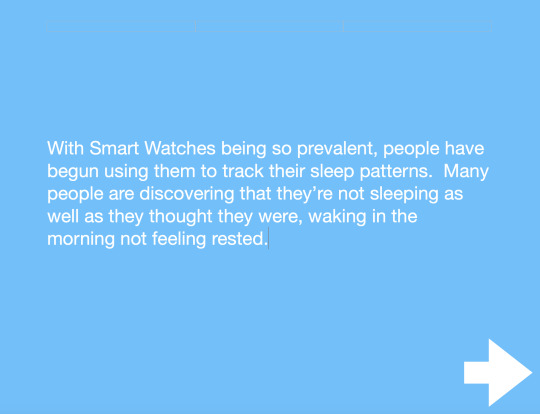
View On WordPress
#childhood trauma#emotional health#insomnia#Mental Health#mental health awareness month#narcolepsy#sleep#trauma#trauma healing#trauma recovery
0 notes
Text
Hey all! Today is World Sleep Day! I'd thought I'd share that I have a sleeping disorder, narcolepsy. Its why I have a small room in the lab with a bed in it. Well, it serves a double purpose, technically. For overnight observation, and for my midday naps as needed.
But narcolepsy hasn't stopped me from following my passions in research! It just means I've never pulled an all-nighter.
#pokeblogging#pokemon irl#prof lemon#ooc// hey guess who has narcolepsy irl#ooc// and guess who wanted a character that reflects some of those struggles and brings some awareness to it#ooc// you dont have to keep guessing its me
1 note
·
View note
Text
I still gaslight myself, even though I’ve been diagnosed and treatment has greatly improved my quality of life. The first two rheumatologists I saw after becoming symptomatic told me I didn’t have lupus, that my symptoms were in my head and I was just anxious. That that has stuck with me and often makes me doubt that I actually have this disease. I have to constantly remind myself that this is real, that I truly do have lupus. I remind myself that my current rheumatologist wouldn’t have me on such heavy-duty immunosuppressants and biologic infusions if I didn’t actually have lupus. Medical gaslighting has made me anxious about going to new doctors or expressing my concerns to new and current doctors. I am so tired of being invalidated by other people and even myself about my illnesses. Being chronically ill is so mentally, physically, and emotionally draining.
#systemic lupus erythematosus#sle lupus#lupus warrior#lupusadvocate#lupus#lupusawareness#chronic life#chronic disability#chronic illness warrior#chronic illness awareness#medical gaslighting#self gaslighting#narcolepsy#sleep disorder#living with lupus#spoonie life#chronicillnesslife#lupuslife
6 notes
·
View notes